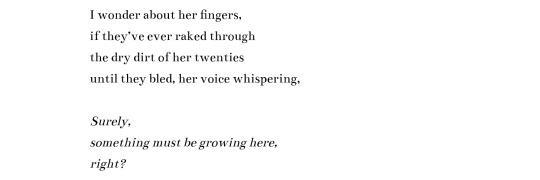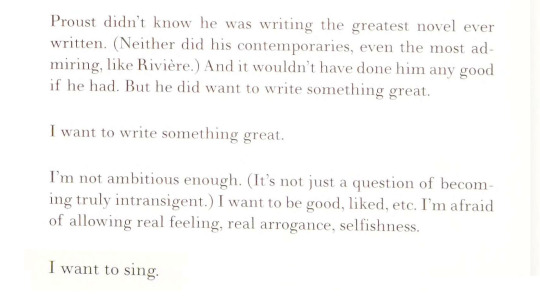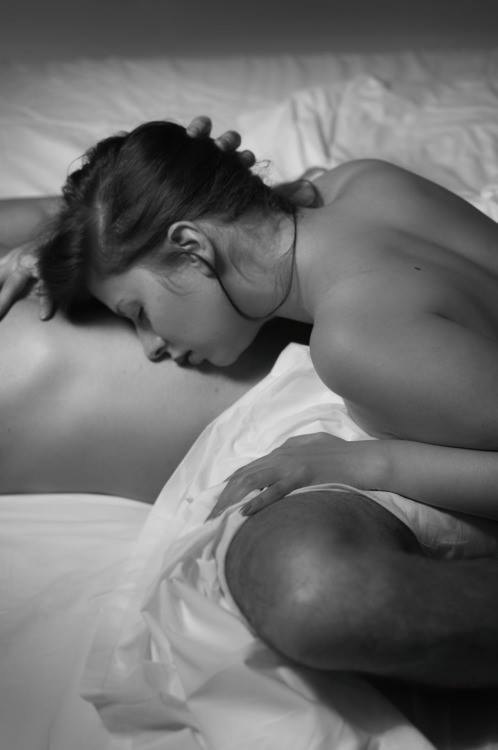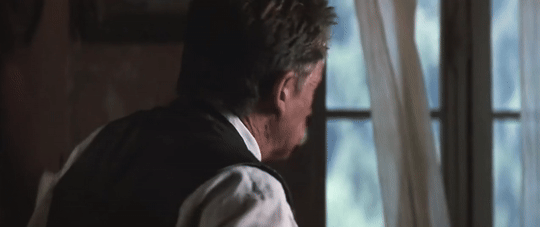#louis de bernieres
Text
SELF-PORTRAIT AT 24

Ana Carrizo, What Was Missing

Louis de Bernieres, Captain Corelli’s Mandolin

Brenna Twohy, ‘ON SEEING PHOTOS OF HIS NEW GIRLFRIEND ON FACEBOOK’, from Swallowtail

Bruce Coville, Jennifer Murdley’s Toad

The Antlers, Bear

When Harry Met Sally (1989) dir. Rob Reiner

Thomas Harris, The Silence of the Lambs

Raven Leilani, Luster

Comment left on a pinterest post

Elle Emerson, Regarding the Röttgen Pietà

Susan Sontag, As Consciousness is Harnessed to Flesh

Dominique Christina, Stargazer

Lia Kimura, Unknown (2018)

John Steinbeck, East of Eden

Florence + The Machine, South London Forever

Wislawa Szymborska, Moment of Silence

Barbara Ras, ‘You Can’t Have It All’ from Bite Every Sorrow
#hi guys. been a while <3#webs#web weaving#mine#in honour of another year#theme: absence#theme: beauty#theme: anguish#theme: age#theme: the self#Louis de Bernieres#brenna twohy#the antlers#raven leilani#unknown#(im really mad at myself for not making a note of where i saw this when i screenshotted bc i cannot find it again)#Wislawa Szymborska#susan sontag#elle emerson#when harry met sally (1989)#florence + the machine#bruce coville#thomas harris#john steinbeck#dominique christina#barbara ras#lia kimura
215 notes
·
View notes
Text

The human heart likes a little disorder in its geometry.
-- Louis de Bernieres
(Bistrița, Romania)
#geometry#buildings#heart#medieval#travel photography#disorder#louis de bernieres#bistrita#Romania#quote#old buildings#rooftops
204 notes
·
View notes
Text

(…)
l'amore è una pazzia temporanea, erutta come un vulcano e poi si placa, e quando accade bisogna prendere una decisione. devi capire se le vostre radici si sono intrecciate al punto da rendere inconcepibile una separazione.
perché questo è l'amore. non è l'ardore, l'eccitazione, le imperiture promesse d'eterna passione,
il desiderio di accoppiarsi in ogni minuto del giorno. non è restare sveglia la notte
a immaginare che lui baci ogni angolo del tuo corpo. no, non arrossire, ti sto dicendo qualche verità.
questo è semplicemente essere "innamorati”. una cosa che sa fare qualunque sciocco.
l'amore è ciò che resta quando l'innamorato si è bruciato; ed è sia un arte sia un caso fortunato.
ci sono radici che si protendono sottoterra l'una verso l'altra e quando i bei fiori cadono si scopre che si è un albero solo, non due. ma a volte i petali cadono senza che le radici si siano intrecciate…
32 notes
·
View notes
Text
Father Arsenios knelt in his church, attempting to find words to a prayer, perplexed by a novel sensation of having been let down by God. He had become so accustomed to the idea that he was condemned forever to be the one who let down God, that he found himself lost for a formula that was not full of reproaches, and even insults. He resorted to his habitual, "Lord Jesus, Son of God, have mercy on me, a sinner," and reflected that even after all these years its repetition had failed to enter his heart. In his youth he had believed that one day this prayer would reveal the Vision of Divine and Uncreated Light, but he knew now that it had become a formula, a barrier between himself and the God who was speechless and evasive. "Lord Jesus, Son of God," he prayed at last, "what the hell do you think you're doing? What was the point of Golgotha if the Devil was not defeated? I thought you said you'd banished sin. Did you die for nothing, then? Are you going to let us all die for nothing? Why don't you do something? I know that you are invisibly manifest at the Eucharist, but if you are invisible, how do I know that you are there?" His fat jowls vibrated with emotion; he felt like a boy who has come to man's estate and discovered that his father has left him no inheritance. "Lord Jesus, Son of God," he prayed. "If you're not going to do anything, I will."
Louis de Bernieres, Captain Corelli's Mandolin
34 notes
·
View notes
Note
Read Corelli’s Mandolin during August 2020, and you’re right that it’s such a summer book, especially for those late summer afternoons. No exaggeration that I think about “Since I encountered death, met death on every mountain path, conversed with death in my sleep, wrestled with death in the snow, gambled at dice with death, I have come to the conclusion that death is not an enemy but a brother…he likes the young and beautiful, he wants to stroke out hair and careless the sinew that binds our muscle to the bone…” all the time
It makes me so happy to hear this
Have you read Birds Without Wings, Louis de Bernières's novel this time located around the First World War in Turkey? It is also for the warm seasons!
9 notes
·
View notes
Text
"Love itself is what is left over when being in love has burned away, and this is both an art and a fortunate accident."
On Love, from Dr. Iannis to his daughter Pelagia, in the island of Cephallonia, Greece from Louis de Berniéres' "Captain Correli's Mandolin".
#captain corelli's mandolin#louis de bernieres#Dr Iannis#Pelagia#Captain Correli#love#quotes on love
15 notes
·
View notes
Quote
If I still remember those that I have loved, then I won't have lived for nothing, for what would be the point of anything, if nothing is remembered?
Louis de Bernieres, Birds Without Wings
9 notes
·
View notes
Text
~ February's Books Reviewed ~
This month could not quite live up to the joy that was January's in terms of books. I think, especially after ending on Blake's Atlas Series, I was a little in shock and mourning over what I could possibly read next! As a result, I started the month re-reading an old favourite, and then moved on to making my way through some of my mother's old books that I borrowed when I last visited. I enjoyed this in the sense that it broadened my reading habits, however it did mean that my general ranking books was lower this month.
All For The Game Series by Nora Sakavic
(269 & 338 & 431 pages)
Now, I understand these books are not good. They're problematic in several ways, probably in more ways than I realise. However, I unapologetically love them. The found family is everything, the representation (even though it is far from accurate) of demisexuality and mental health struggles make me emotional at points and this trilogy will remain one of my constant comfort reads. In terms of warnings, people should know that there are many inaccuracies and slightly problematic choices; it is also graphic and descriptive of torture and self harm. However, the characters and their relationships, with themselves and their relationships is beautiful, and as such I will always choose to come back to this trilogy when I want a cosy comforting read.
I gave this trilogy 5 stars ⭐ ⭐ ⭐ ⭐ ⭐
Memoirs of a Geisha by Arthur Golden
(428 pages)
I was excited to read this book as it is a classic that has been on my list for a while, but unfortunately I'd ultimately describe myself as underwhelmed by it. I know it was fairly recently in the news for its cultural inaccuracies anyway, but that combined with the fairly graphic sexual scenes did make me rather uncomfortable. Aside from that, I just found it a little dull and be perfectly honest. I'm glad I read it, but I cannot see myself ever re-reading it either.
I gave this book 2.5 stars ⭐ ⭐ 🌗
The Time Travelers Wife by Audrey Niffenegger
(518 pages)
This was another book that has been on my list for a while, especially since I've heard people claiming they absolutely loved it, however, again it was far from the best book I've read recently. The concept was extremely interesting and the style and structure was totally not what I was expecting. The age gap and time jumping made some sections a bit odd or confusing or uncomfortable; and the ending was honestly a little anticlimactic. That being said, it was definitely not a bad book, and I did enjoy parts of it, I just wasn't blown away.
I gave this book 3.5 stars ⭐ ⭐ ⭐ 🌗
The Forgotten Garden by Kate Morton
(646 pages)
I was surprised by how much I enjoyed this book as I picked it up on a bit of a whim. Essentially, it was a mystery novel and despite life getting a little busy while reading this, it kept me hooked and coming back to it without any long breaks. There were certainly parts that were slow and also bits that were a bit clunky, but overall I found this a satisfying and very gentle read.
I gave this book 4 stars ⭐ ⭐ ⭐ ⭐
Captain Corelli's Mandolin by Louis de Bernières
(435 pages)
Amazingly descriptive, but not very engaging. I'm glad I managed to read it since it is another classic one, however there were times when I honestly wasn't sure I'd finish it. While reading it I was sure it was only going to get two stars, however it picked up significantly at the end so pulled itself up. I will say that it was really interesting reading about this period of time (first half of the 20th century) from the Greek and Italian perspective as I feel that is a rather understudied section of history.
I gave this book 3 stars ⭐ ⭐ ⭐
One Day by David Nicholls
(435 pages)
I could forgive the dull storyline if it weren't for the fact the protagonists were so incredibly awful. It's all well and good having flawed characters, but when they're bad enough that I find myself actively rooting against then it's usually not a good sign. I did enjoy the symbolism of the end however, even if it was highly predictable.
I gave this book 2 stars ⭐ ⭐
#book review#book reccs#claireelizabethsblog#aftg#nora sakavic#all for the game#the foxhole court#the raven king#the kings men#arthur golden#memoirs of a geisha#audrey niffenegger#the time traveler's wife#kate morton#the forgotten garden#louis de bernieres#captain corelli's mandolin#david nicholls#one day
4 notes
·
View notes
Text
"The real index of civilization is when people are kinder than they need to be."
Louis de Bernieres, novelist (b. 8th December 1954)
0 notes
Text











"You think you can come here and turn my whole world upside down?"
#captain corelli's mandolin#corelli's mandolin#captain corelli#penelope cruz#nicolas cage#john hurt#louis de bernières#louis de bernieres#kefalonia#cephalonia#greece
1 note
·
View note
Text
Louis de Bernieres: Real index of civilization
“The real index of civilization is when people are kinder than they need to be.”
—Louis de Bernieres.
View On WordPress
0 notes
Photo

Currently reading this. It reminds me of Garcia Marquez a lot; the way there are stories which spark off on every page, with a spanning, enjoyably crazy zeal. Good stuff indeed. It somehow manages to make World War II playful, as well. In a similar manner to Pynchon’s Gravity’s Rainbow.
1 note
·
View note
Text
I've done it again. I've fallen in love with a fictional man from a book.
#Daniel Pitt from Louis de Bernieres trilogy#the dust that falls from dreams#so much life left over#the autumn of the ace#reading#book tumblr
15 notes
·
View notes
Photo

[from my files]
* * * *
"Love is a temporary madness. It erupts like an earthquake and then subsides. And when it subsides you have to make a decision. You have to work out whether your roots have become so entwined together that it is inconceivable that you should ever part. Because this is what love is. Love is not breathlessness, it is not excitement, it is not the promulgation of promises of eternal passion. That is just being “in love” which any of us can convince ourselves we are. Love itself is what is left over when being in love has burned away, and this is both an art and a fortunate accident. Your mother and I had it, we had roots that grew towards each other underground, and when all the pretty blossoms had fallen from our branches we found that we were one tree and not two."
— Louis de Berniéres, Captain Corelli’s Mandolin
16 notes
·
View notes
Text
The tiny woman with dazzling blue eyes who turned me from a republican to a royalist by Louis de Bernières (September 2nd 2023)
Somewhere in my possession I have a snotty letter I wrote to my mother from university about not being interested in the Queen's 1977 anniversary. I was a young philosophy student at the time and being enthusiastic about the Monarchy was definitely not cool, especially as there was some kudos to be accrued from pretending to be Leftist.
I found myself puzzled and irritated by all the street parties and general celebrations, as if it was nothing to do with me. A few years earlier I had 'enjoyed' five months of officer training at Sandhurst where I had to swear allegiance to the Queen, her heirs and successors and I remember protesting inwardly that if one were to fight, it should be for a cause and not for a person.
However, in the 1990s I won the Commonwealth Writers Prize in three of its iterations. It meant that I had had my books chosen not by the usual London literati, with whom I have never been in favour, but by judges from all over Africa, Asia and indeed the world.
As I found out, the Queen's great passion was for the Commonwealth rather than Great Britain. It had been the means whereby the British Empire had miraculously and almost seamlessly transformed itself into a cultural and diplomatic club, so successfully that by the end of the Queen's reign there were countries in it that had never been in the Empire at all.
As the head of it, the Queen had, let's face the truth, literally charmed a succession of heads of state out of any post-colonial resentment that may have been niggling away inside of them.
She treated them with love and respect and had her love and respect returned. Julius Nyerere [Tanzania's leader] and Nelson Mandela are examples of two people who became close to her.
One of the perks of winning that writers prize was that the winners in all the categories were invited to Buckingham Palace to meet the Queen. You were advised about steps to be taken, how to bow and so on, and then you went in.
Some people are apparently tongue-tied and terrified but I found myself face-to-face with a tiny woman in sparkly clothes, with dazzlingly blue eyes, perfect complexion and a smile that seemed to break her face in half.
If you said anything boring or inane, she would say: 'How fascinating.' She made a joke about somebody important and self-important she had just met, which I am honour-bound not to repeat.
Her voice and turns of phrase were just like my mother's, they being of the same vintage. My problem was not that I was terrified or tongue-tied but that I felt warmly enough, relaxed enough, to want to be over-familiar. As the cliché goes, I went in a republican and came out a royalist.
I remembered how I had adored her as a little boy because she was so outstandingly pretty, and now I reflected that perhaps my previous resentment of her had been nothing more than the pique of somebody who had no hope of ever entering such a charmed circle.
Now that I had entered it for a few minutes, all the pique and sullenness suddenly evaporated.
If you had met the Queen, you assumed that she really wanted to know you and would become a little sad when no more invitations ever arrived. I was relatively lucky in winning that prize three times because I automatically got to see her three years running. Somebody told me she'd read my book Captain Corelli's Mandolin on a long flight to New Zealand but I have no idea if that is true or who told me; perhaps it was a lady-in-waiting.
There was one present on one occasion with a fag in her hand and I remember thinking: 'The Queen must be very tolerant to put up with that.' I bent down to pat the dogs when I should have been talking to her but she seemed unperturbed, as she was when I trod on one and made it squeal.
She had recently invented the Dorgi and was pleased about it.
I can no longer remember the order of things. As I drove (and still do) a Morris Minor, and had even worked as a mechanic in a Morris Minor garage for a year, I had been able to rescue a young woman in a broken down Morris near Richmond Park, who worked for the Royal Academy.
Thereafter I received free invitations to everything as long as she worked there. There was a do where I found myself in the company of the likes of Paul McCartney and Brian May, who are both outstandingly tall, but no one was talking to me until the Queen spotted me and made a beeline.
She was ever conscious of the number of people she had to talk to and would end her conversations very suddenly, even a very entertaining one, by suddenly turning her head to one side. Then the rest of her body would swivel sideways and she was off, like someone in a hurry to catch a train. It should have been very rude but it was both comical and endearing.
She had a party for poets at Buckingham Palace, which struck me as a dangerous and peculiar idea. I was standing with another poet when the Master of the Household approached me and said: 'Don't move, the Queen wants to have a chat with you.'
There was another beeline, another brief conversation, another swivel of the head, another charging away. I got on so well with the Master of the Household that we are still friends years later.
She had a party at Windsor Castle that was, I believe, the first after its restoration. She looked out across the courtyard at my Morris Minor Traveller and said: 'Goodness, we haven't had one of those here for years.'
The dinner party was a kind of glamorous sleepover. My luggage was unpacked for me by a valet who was very unimpressed that I was going to wear the same white shirt to dinner as the one in which I had arrived. 'Economising on effort I see,' he said drily.
The dinner was on silver plates. I hope I have not made that up. I was sitting next to Prince Andrew to begin with and we chatted about golf. I liked him and had no reason not to.
I eavesdropped on the German Ambassador talking to Tony Blair and I was impressed. When the latter stood up to leave with the ladies, the laughing Queen ushered him back into the room with her hand in the middle of his back.
I was struck by how frugal her appetite was; she was no trencherwoman. In her position and with such good cooks, I would have been the most massively globular monarchical flumper that the world has ever known, considerably larger than Edward IV and Henry VIII and Edward VII combined.
I spent the next morning in her library. She had many genealogy books and I found one with an inscription by Winston Churchill, so flowery, elaborate and humble that I felt guilty and embarrassed about the cheery informality of my own exploits on the flyleaf.
There was another party at Windsor for people 'in the Arts'. The Irish poet Seamus Heaney was there, surrounded by admiring young poets. 'Your passport may be green,' I thought, 'but you're as much a sucker for all this as anyone else is, aren't you?' The last time I saw the Queen was when she invited me to lunch at the palace. I think she had had a notion to invite a few people from each county one after the other, so as to work her way around the entire country. One of the guests was a fireman.
On the way, the sole of my shoe came off and I had to buy a new pair from a shop in Oxford Street.
At the gathering beforehand I had a conversation with the Duke of Edinburgh, about death. He said that the older one got, the more one was forced to contemplate it.
I liked him. He was intelligent and humorous, a man who clearly saw the absurdity of pretty much everything. He once teased me about being a novelist and a poet, as if it were altogether unnecessarily too much to do two such fatuous things in the same lifetime.
The Queen had a system for making things happen, which was that she would make a sudden move. When I was talking to the Duke, he suddenly stiffened and looked up because the Queen had made her 'action stations' move, just as I was asking him if he spoke Greek. She said: 'Well, do you speak French?'
I found myself sitting at her right hand side and during my half of her attention (she would switch halfway through a meal) we talked, among other things, about speaking French. We talked about Norfolk and I entertained a brief fantasy of being invited to Sandringham.
I think I may have disgraced myself by taking two quail breasts from the dish. She had only taken one but they are terribly small.
Afterwards I was standing at the gate of the palace when she whizzed out on her next mission, without even the slightest break or smidgen of a snooze. I was standing next to an armed policeman in all the gear and he suddenly looked down at me and asked: 'Ere, do you live in Denton?' I said, 'Yes, how did you know?' He relied: 'I beat you in the Father's Race.' I said: 'It was my sandals. I'd have won if I hadn't tripped up on the finishing line.'
While the Queen was hurtling off to her next appointment, I fell asleep on a bench in Hyde Park to recover from lunch.
That was the last time I saw her, waving from her car.
Thereafter I sent her books via my friend the Master. Books from their authors are just about the only gifts the Royal Family are allowed to receive. We have a large room in my house that we call 'The Queen's Room' because I used to tell my children that that's where we'd put her if she came to stay.
One day my little daughter wrote her a letter inviting her to stay, telling her that we had a very glamorous bathroom, and received a reply about being too busy. I don't think Sophie ever forgave her, and might even still be a republican.
I don't think it is possible to make a friend of anyone in the Royal Family, or make any assumptions if they are kind to you or seem interested in you. All that can happen is the occasional flash of communication or warmth that gives you a glimpse of the person within.
Princess Anne is intelligent and direct, the Duke of Edinburgh had a philosophical turn. The question is, what do they get from us?
I think the Queen mostly enjoyed herself because her enjoyment coincided with her duty. There was an eagerness in her manner as she suddenly looked away and shot off to talk to somebody else.
It's her heirs and successors I worry about. We, their subjects, are just going to try to make them as miserable as we can, aren't we? We are too chippy to speak generously of them and we are piqued about not being royalty ourselves. I found that having encountered the Queen, I was unable to be impressed by anyone else. Madonna invited me to lunch once and I still don't know why. I said no because I had a commitment in Northern Ireland. Sting wanted me to fly to Milan to interview him and I don't know why I said no to that either.
I've met many of my heroes, I've shaken hands with Nicolas Cage and President Clinton and been kissed on the cheek by Penelope Cruz. Only being kissed on the cheek by Penelope comes anywhere close to meeting the Queen.
#brf#royal anecdote#this is absolutely beautiful#the epitome of queen#queen elizabeth ii#prince philip#duke of edinburgh
58 notes
·
View notes
Text
How many have you read?
The BBC estimates that most people will only read 6 books out of the 100 listed below. Bold the titles you’ve read.
1 Pride and Prejudice - Jane Austen
2 Lord of the Rings - J. R. R. Tolkein
3 Jane Eyre – Charlotte Bronte
4 Harry Potter series
5 To Kill a Mockingbird - Harper Lee
6 The Bible
7 Wuthering Heights – Emily Bronte
8 Nineteen Eighty Four – George Orwell
9 His Dark Materials – Philip Pullman
10 Great Expectations – Charles Dickens
11 Little Women – Louisa M Alcott
12 Tess of the D’Urbervilles – Thomas Hardy
13 Catch 22 – Joseph Heller
14 Complete Works of Shakespeare
15 Rebecca – Daphne Du Maurier
16 The Hobbit – JRR Tolkien
17 Birdsong – Sebastian Faulks
18 Catcher in the Rye - J. D. Salinger
19 The Time Traveller’s Wife - Audrey Niffeneger
20 Middlemarch – George Eliot
21 Gone With The Wind – Margaret Mitchell
22 The Great Gatsby – F Scott Fitzgerald
23 Bleak House – Charles Dickens
24 War and Peace – Leo Tolstoy
25 The Hitch Hiker’s Guide to the Galaxy – Douglas Adams
26 Brideshead Revisited – Evelyn Waugh
27 Crime and Punishment – Fyodor Dostoyevsky
28 Grapes of Wrath – John Steinbeck
29 Alice in Wonderland – Lewis Carroll
30 The Wind in the Willows – Kenneth Grahame
31 Anna Karenina – Leo Tolstoy
32 David Copperfield – Charles Dickens
33 Chronicles of Narnia – CS Lewis
34 Emma – Jane Austen
35 Persuasion – Jane Austen
36 The Lion, The Witch and The Wardrobe – CS Lewis
37 The Kite Runner - Khaled Hosseini
38 Captain Corelli’s Mandolin - Louis De Bernieres
39 Memoirs of a Geisha – Arthur Golden
40 Winnie the Pooh – AA Milne
41 Animal Farm – George Orwell
42 The Da Vinci Code – Dan Brown
43 One Hundred Years of Solitude – Gabriel Garcia Marquez
44 A Prayer for Owen Meaney – John Irving
45 The Woman in White – Wilkie Collins
46 Anne of Green Gables – LM Montgomery
47 Far From The Madding Crowd – Thomas Hardy
48 The Handmaid’s Tale – Margaret Atwood
49 Lord of the Flies – William Golding
50 Atonement – Ian McEwan
51 Life of Pi – Yann Martel
52 Dune – Frank Herbert
53 Cold Comfort Farm – Stella Gibbons
54 Sense and Sensibility – Jane Austen
55 A Suitable Boy – Vikram Seth
56 The Shadow of the Wind – Carlos Ruiz Zafon
57 A Tale Of Two Cities – Charles Dickens
58 Brave New World – Aldous Huxley
59 The Curious Incident of the Dog in the Night-time – Mark Haddon
60 Love In The Time Of Cholera – Gabriel Garcia Marquez
61 Of Mice and Men – John Steinbeck
62 Lolita – Vladimir Nabokov
63 The Secret History – Donna Tartt
64 The Lovely Bones - Alice Sebold
65 Count of Monte Cristo – Alexandre Dumas
66 On The Road – Jack Kerouac
67 Jude the Obscure – Thomas Hardy
68 Bridget Jones’s Diary – Helen Fielding
69 Midnight’s Children – Salman Rushdie
70 Moby Dick – Herman Melville
71 Oliver Twist – Charles Dickens
72 Dracula – Bram Stoker
73 The Secret Garden – Frances Hodgson Burnett
74 Notes From A Small Island – Bill Bryson
75 Ulysses – James Joyce
76 The Bell Jar – Sylvia Plath
77 Swallows and Amazons - Arthur Ransome
78 Germinal – Emile Zola
79 Vanity Fair – William Makepeace Thackeray
80 Possession – AS Byatt
81 A Christmas Carol – Charles Dickens
82 Cloud Atlas – David Mitchel
83 The Color Purple – Alice Walker
84 The Remains of the Day – Kazuo Ishiguro
85 Madame Bovary – Gustave Flaubert
86 A Fine Balance – Rohinton Mistry
87 Charlotte’s Web – EB White
88 The Five People You Meet In Heaven – Mitch Albom
89 Adventures of Sherlock Holmes – Sir Arthur Conan Doyle
90 The Faraway Tree Collection – Enid Blyton
91 Heart of Darkness – Joseph Conrad
92 The Little Prince – Antoine De Saint-Exupery
93 The Wasp Factory – Iain Banks
94 Watership Down – Richard Adams
95 A Confederacy of Dunces – John Kennedy Toole
96 A Town Like Alice – Nevil Shute
97 The Three Musketeers – Alexandre Dumas
98 Hamlet – William Shakespeare
99 Charlie and the Chocolate Factory – Roald Dahl
100 Les Miserables – Victor Hugo
As found in the original post I saw by @macrolit
My total: 43/100
#tear-chan talks#reading and stuff#damn this is both more and less than I expected haha#this tells me I should probably read more Dickens#also some of these I read in Spanish so...
80 notes
·
View notes